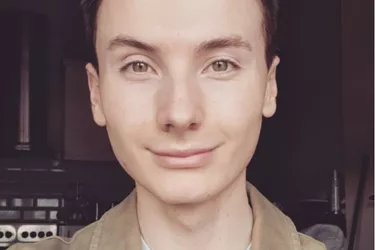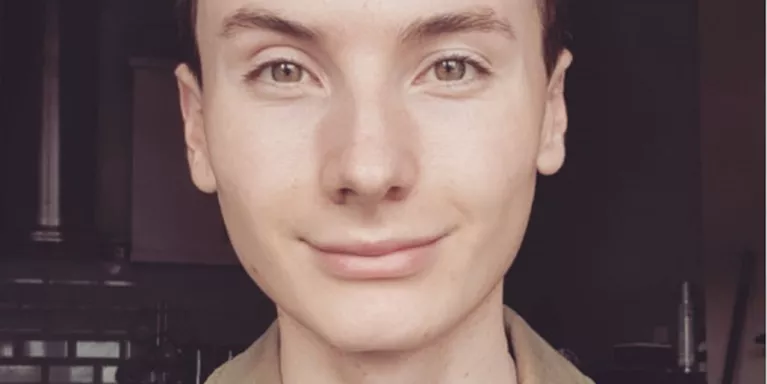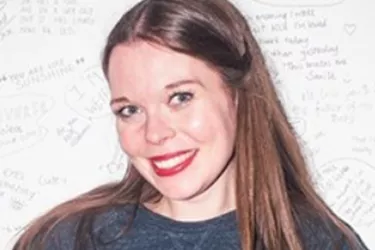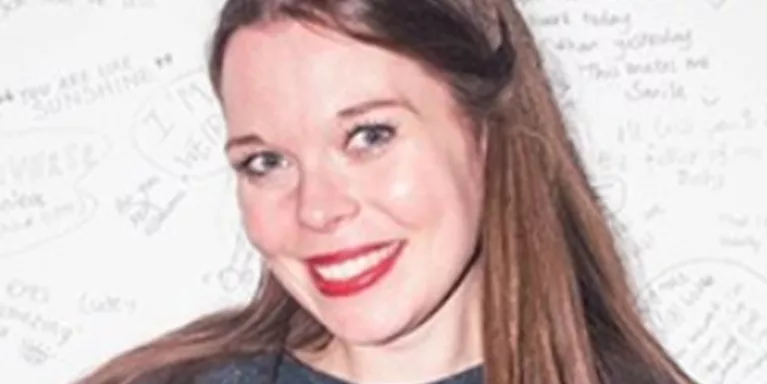Lockdown gave me time to reflect
This blog discusses eating disorders.
As part of our Christmas appeal, Alice blogs about how her eating disorder worsened at university and the pandemic gave her the chance to be kinder to herself.
When I was in sixth form at school I had what I now know is an eating disorder. At the time I thought I just had a weird fixation with academia. When I was studying, I would say to myself, “Oh well you could have lunch once you've done a certain number of hours work or once you've done this much of your checklist.”
I wrongly got into my head that by being hungry I could maybe study better. And so I carried this on when I went to uni, which was quite dangerous because for the first time I was cooking for myself.
"I would be healthier if I’d known in sixth form that eating disorders weren't just not eating or making yourself throw up."
I think I would be healthier and happier if I’d known in sixth form that eating disorders weren't necessarily just about not eating or making yourself throw up. There is so much more on the spectrum. It isn't just about what you eat and when you eat, but the way you view food. If I’d known all of that, I wouldn't have negative connotations about food, like I do now. I think there should just be more education. I don't think I really registered that I was developing a problem.
At university I was homesick. I think I made some quite bad relationships while I was there just because I had gone in with this mindset that I'm not very good at making friends. My mental health problems came to a head at university where I was studying biomedical science. While I was there it was very evident that I wasn't OK and that I needed help. But I was so scared and thought my problems weren’t valid and that I didn’t deserve help. So I never got the help I needed.
No mental health budget at uni
At uni I discovered that the mental health service was not very well put together, and that stemmed from there not being enough employees.
There was just never the budget for it. Mental health should be something that's considered as important as a pension scheme or investing in people's futures. We should invest in people's mental health. Since the pandemic, mental health provision has got even worse – waiting lists for therapy are so long. When I was looking into getting mental health help it wasn’t broadcast anywhere and it wasn't easy to find. I really had to dig.
The pandemic came at a bad time for me. I had started to feel healthier and more settled at university. Then to be told I wouldn’t be able to complete my final year there was tough. After forcing myself to get through uni, not be able to graduate the traditional way was heart-breaking. Back home, I found it harder to focus on my studies because there were so many distractions. The format of the exams also suddenly changed to 24-hours exams and they removed the recall-based questions from the exam, which were my strength. So the pandemic definitely adversely affected student life and my mental health.
"The pandemic meant that I was back at home and had a constant support system. Obviously I was lucky."
But there have been positives, too. I’m having CBT now as part of my recovery journey and am finding it helpful. For me, the pandemic gave me time to think: “OK, so I actually did have problems. These things could help me find ways to cope with it and help me get out of those negative mindsets that I used to have before.”
The pandemic gave me a lot of time to reflect. It meant that I was back at home and had a constant support system. My eating improved because we had family dinners together.
I also had time to explore other hobbies. I was seeing other people start embroidering or playing an instrument and thought: 'I'm going to try that’. I discovered that I wasn’t just a scientist. Before I could only thrive on grades, but when I had time to myself l discovered new things that I'm good at apart from being academic, which has been really nice. I think other people have too. That’s been one of the positives to come out of the pandemic – there's so much more creativity in the world. So many of my friends have started podcasts, businesses or little hobbies.
I started working to distract myself. I wanted to find a job that wasn't based at home. I didn't want to have the fear of being made redundant at any point. So I gave myself a checklist. I ended up working as a support worker for people with learning disabilities and physical disabilities.
Using Mind’s resources
I've used the Mind website. My friend and I did a mental health podcast over lockdown. We used a lot of Mind’s resources on mindfulness and looked at information about different mental health disorders. Mind has great resources and explains things about mental health very well.
Creating the podcast made me even more aware of all the things Mind does to help people with mental health problems. Mental health is so much on the back burner, and Mind really brings it to the forefront of people's minds.
Things are better for me right now with everything opening up again. Going to galleries and seeing people has been lovely. So actually I’m in a good place right now.
The pandemic has left millions of us with trauma. This Christmas, we’ve got to act. We need to make sure that next year there’s proper mental health support for everyone who needs it. By donating to our Christmas appeal, you could help make that possible.


Information and support
When you’re living with a mental health problem, or supporting someone who is, having access to the right information - about a condition, treatment options, or practical issues - is vital. Visit our information pages to find out more.
Share your story with others
Blogs and stories can show that people with mental health problems are cared about, understood and listened to. We can use it to challenge the status quo and change attitudes.

















